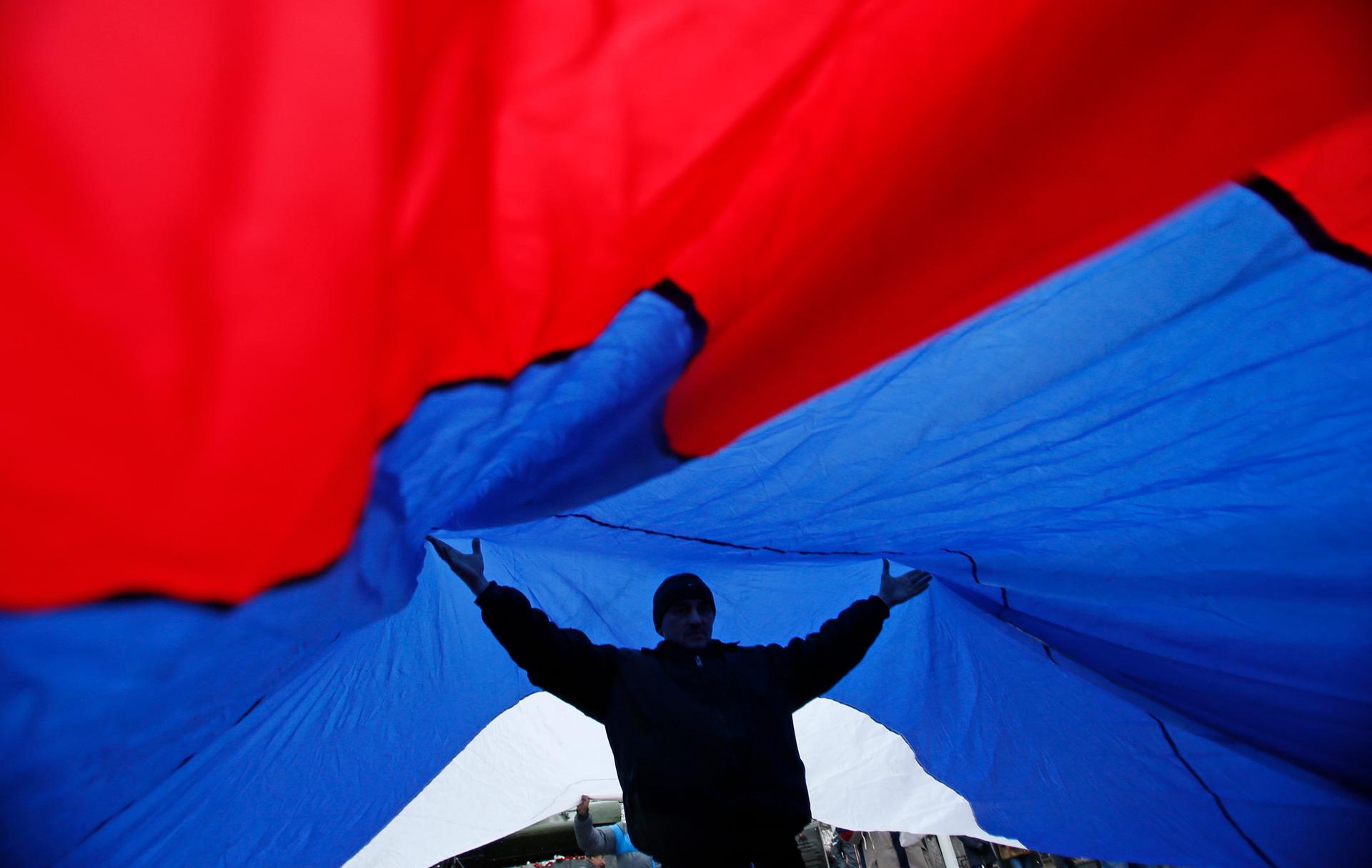As Ukraine smolders, Russia moves on to plan B
Demonstrators unfurl a giant Russian flag during a pro-Russia rally in Simferopol, Crimea.
Masked gunmen stormed government buildings in Ukraine's Crimea region Thursday.
They've barricaded themselves inside, and raised the flag of Russia over the Crimean parliament. Historian Anne Applebaum says the men may not in fact be "real separatists."
"They were wearing unmarked uniforms, they knew what they were doing," Applebaum says. "Is it conceivable that they are a group of people organized by the Russian government from their bases in Sevastopol? Yes, it's possible. Their timing and their organization is suspicious."
Applebaum is the author of Iron Curtain: The Crushing of Eastern Europe. She doesn't foresee a civil war or a violent separatist movement in the short term, but she speculates current developments may be an effort to destablize Ukraine and create "an ungovernable space in Crimea to upset the new government, to create a problem that the new government won't be able to solve."
Applebaum calls Ukraine "a great foreign policy failure" for Russia.
"Perhaps the plan is to cut off a part of Ukraine and absorb it into Russia as fast as possible. Perhaps the plan is simply to destabilize the new Ukrainian government so that people will once again become disillusioned with this pro-European mood in Kiev and they'll vote for something else," she says.
The bottom line, according to Applebaum: Russia doesn't want a prosperous, democratic and pro-western Ukraine because it would threaten Putin's personal power.
"That's too much of a rebuke to Putin and and his system," Applebaum says. "If Ukrainians can have a democracy and can be oriented towards the west then why can't Russia?"
Applebaum says Ukrainians offer some hope for their future.
"This is a very educated country," she says. "There is a pretty deep and broad understanding of where they want to go – and where they want to go is Europe. They have an idea of what a good and prosperous society looks like, and that's what they want."
The other big news on Thursday was the re-emergence of ousted President Viktor Yanukovych. A statement from Russian news agencies said Russia had agreed to guarantee his personal safety, in Russia. In another statement, he asserted he was still the legitimate president of Ukraine, and still the commander of the armed forces. He is due to hold a press conference on Friday in the southern Russian city of Rostov-on-Don, close to Ukraine.
Reporter Charles Maynes in Moscow says the statements mark a shift. Until today, Russian media had portrayed Yanukovych as a weak leader, who had "abandoned his people" and was unable to stand up to the militants who have now "seized power" in Kiev.
Maynes says some pro-democracy advocates in Moscow are drawing parallels between Russia and Ukraine, in terms of problems with corruption and misgovernment.
"They look at the events in Kiev as inspiring," says Maynes. But they are not the majority in Russia, he adds. Most Russians, he says, see that "Russian-speaking populations are under threat in Ukraine … and we need to do something to save them."
